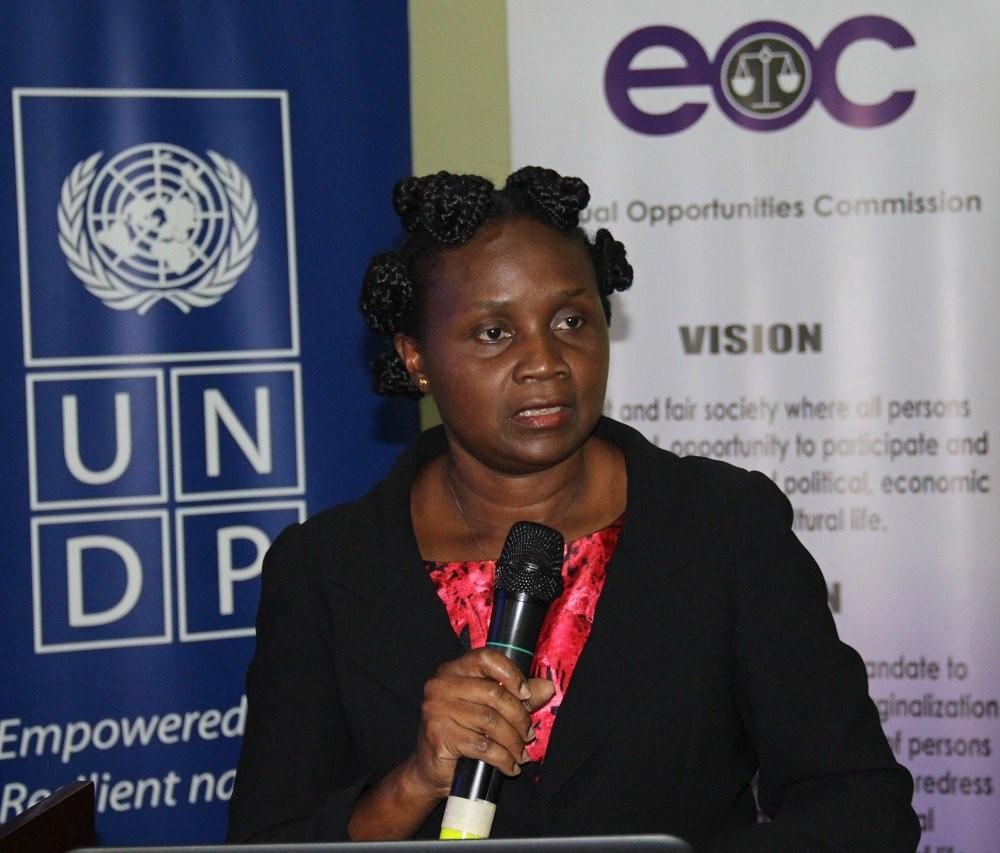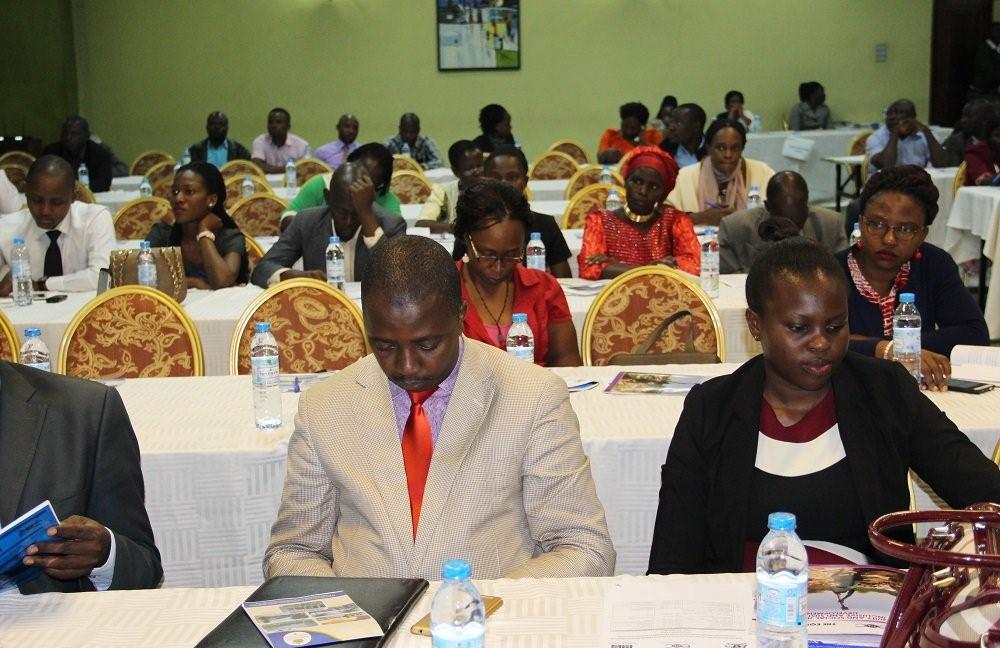Ms. Zaminah Malole, Acting Chairperson, EOC speaking at the event.
The Equal Opportunities Commission (EOC) in partnership with United Nations Development Programme (UNDP) on Thursday 26th April, 2018 convened a validation workshop of the Study Report on the Status of Marginalised Groups in Decision Making Processes at National and Local Government Levels at Imperial Royale Hotel, Kampala.
“Government of Uganda has made significant progress in redressing societal imbalances and promoting equal opportunities for all in governance as evidenced by the provisions for affirmative action with respect to marginalized groups in the composition of local councils in the 1995 Constitution of the Republic of Uganda and the Local Government Act 1997,” Zaminah Malole the Acting Chairperson, EOC said while opening the event.
She added that groups like women, youth, workers and Persons with Disabilities needed to be politically empowered and were specifically given special seats at every level of decision making in the country.

Annet Mpabulungi Wakabi, Team leader Governance, UNDP reiterated that Inclusion of marginalized groups in decision-making processes, is not a favour nor a mere fulfilment of human rights obligations, but a catalyst to democratic governance and Sustainable Inclusive Development.
“Beyond this validation, we are of the opinion to have such reports disseminated widely to the Executive and Members of Parliament who are critical in decision making aspirations of transforming Ugandans,” she added.
The Study Report profiles the current situation on involvement of marginalized groups in decision making processes in Parliament and selected Local Governments, factors that hinder effective participation of marginalised groups in decision making processes and makes policy recommendations geared at advancing participation and empowerment of the marginalised groups.
Wafula Sirabo Patrobas, the Acting Vice Chairperson, EOC hoped that the information provided by the Study Report would address issues that affect marginalized groups such that no one is left behind.
“I consider this report an extremely useful document that can inform policy and our various stakeholders on the gaps regarding participation of marginalized groups in decision making processes,” Mr. Wafula said, adding that equal opportunities is about the needs of others.
Prof. Olwor Sunday Nicholas thanked UNDP for the financial support extended to the Commission and called upon all the stakeholders involved in the sector to join hands with Government to ensure the recommendations of the report are implemented.
Several speakers at the workshop noted that the report was timely since it highlights the status of marginalized groups in decision making processes. The issues given particular prominence where on low representation of marginalized groups at top decision making level, low levels of education, low self-esteem of Persons With Disabilities and societal and cultural barriers.

“We have two representatives at Local Government and five in Parliament. When we try to contest in positions against able bodied members we are told to go where we belong,” said Beatrice Guzu, Executive Secretary National Council for Disability (NCD).
Collins Mwijuka raised the issue of involving women in decision making processes at the household level in order to empower them for leadership positions. “This will set a foundation for a playing ground,” he added.
Albert, a representative of older persons from Pallisa advocated for additional funding for the Social Assistance Grants for Empowerment programme (SAGE). “Giving the Chiefs and the Local Council systems to run the affairs of older persons looks unfair to these councils. The older person’s councils are therefore requesting that the programme includes the Executive councils in their transactions.”
A number of recommendations were proposed at the workshop and EOC pledged to include them in the report which will be launched in due course.

